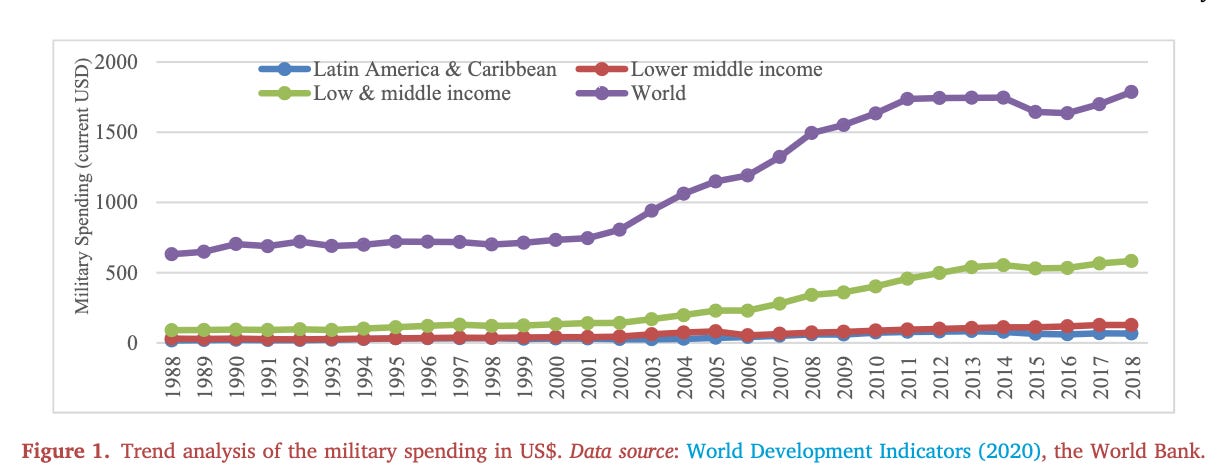In the face of a world fraught with geopolitical tensions and security concerns, it's easy to fall into the trap of believing that military spending is a panacea for all our nation's safety, and I think too often even financial, needs. However, a closer look at the data reveals a more nuanced picture.
The study conducted by Muhammad Azam, published in Heliyon in 2020, provides a compelling argument against the notion that military spending is a surefire path to economic growth In fact, the study suggests that the economic benefits of military spending are far from guaranteed and could even be detrimental.
The study found that while military spending might promote growth in some contexts, it can also have a negative impact on economic growth in others. This is a critical point to consider when discussing the financial implications of military spending.
Moreover, the study suggests that military spending might even diminish the total accumulation of resources available for other domestic needs. I’ve argued against MMT in the past, in fact I’m probably going to make a post on the subject later today, but let’s set that aside for a moment - we’re talking about a proposed $842 billion 2024 fiscal year budget. This is a sobering thought when we consider the potential benefits of investing the same amount of money in other sectors of the economy, such as public healthcare, affordable housing, transit, and public pre-K education.
Imagine if we redirected just even a portion of our military spending towards these sectors. We could create a healthier population, stimulate the construction industry, create jobs, and improve educational outcomes. The potential economic benefits of such a shift could be significant and I’ll point out, anything that we spend money but that has returns higher than its expenditure - those things aren’t even free - we’re making money on them. Military at best is a wash, and quite frequently, beyond even the massive scandal of failed audits, of $2.1 trillion in unaccountable expenses, that’s 61%, our fifth - fifth - failed audit, in a row, we’re just straight up not using the money efficiently, even the minority of that spending we can study directly. And so, bluntly, those who defend military spending on the basis of its financial implications are, at best, misinformed. At worst, they may be intentionally misleading the public.




